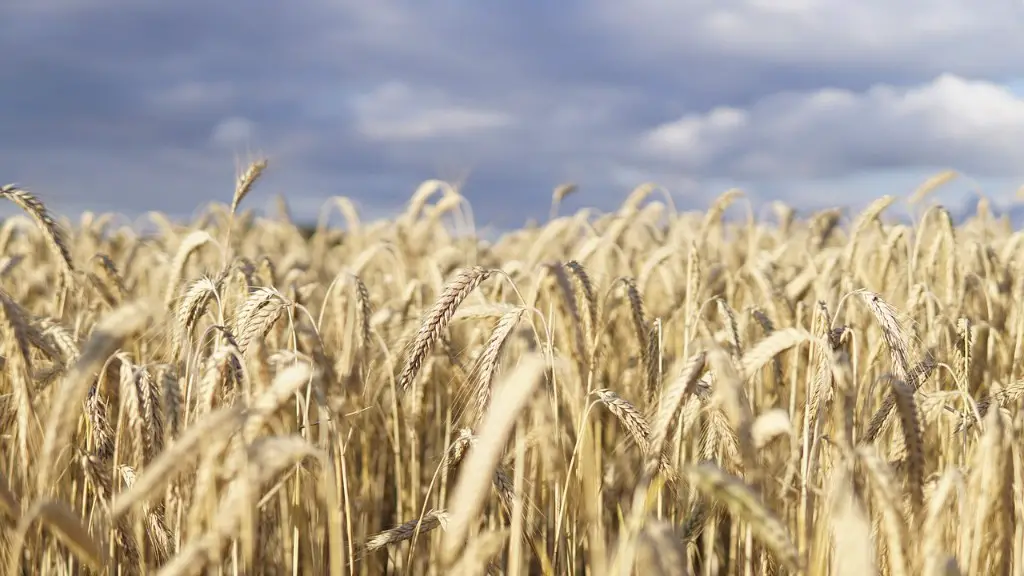Agriculture exemption is an exemption granted by the government to landowners engaged in farming and agricultural activities. The process of obtaining an agricultural exemption can be complicated, but with a thorough understanding of the regulations governing this type of exemption it is possible to obtain the necessary exemption. This article will provide an overview of how to get an agricultural exemption.
To begin, landowners must understand that agricultural exemptions are granted to those who engage in the production of food, fiber, and animal feed. To qualify, the land must be used for agricultural activities, either through farming and animal husbandry, or forestry and irrigation, as well as other approved agricultural practices. Additionally, land must be used solely for agricultural purposes, so any land deemed to be recreational, commercial, or otherwise not for agricultural use cannot qualify for an exemption.
Once a person has identified their land as suitable for an agricultural exemption, they must then fill out an application. Different states and countries may have different applications, but the basic approach is the same: providing information about the land, farming and animal husbandry practices, and any other activities that the land has been used for. After submitting the application, landowners will typically wait a few weeks for the application to be approved.
Once an agricultural exemption has been granted, landowners must adhere to certain regulations, including yearly maintenance and reporting, as well as adherence to other stipulations as determined by local and state regulations. Failure to do so can result in the revocation of the exemption.
It’s important to note that agricultural exemptions provide tax relief to landowners, but they are not permanent. Landowners must apply for a renewal each year, and the renewal process may include additional requirements. Additionally, if any of the underlying regulations have changed since the exemption was first granted, landowners must be aware of those changes, and must adjust their practices to adhere to them.
Overall, agricultural exemptions are a great option for landowners who are looking to gain tax relief and preserve their land for agricultural production. With a thorough understanding of the regulations, landowners should be able to successfully obtain an agricultural exemption.
The Benefits of an Agricultural Exemption
During the application process for an agricultural exemption, landowners should consider all of the potential benefits that this type of exemption provides. These benefits may include a reduction in tax liability, access to certain government subsidies, or favorable loan rates from the government.
Of particular interest to some landowners may be the opportunity to secure lower property tax rates. These rates can be helpful for both small and large-scale agricultural businesses alike, providing a potential windfall of savings that can be reinvested into the business. Additionally, an agricultural exemption can also provide a degree of legal protection in cases where the land is exposed to any sort of claim, including boundary disputes.
Moreover, certain governments may offer certain subsidies to landowners who obtain an agricultural exemption. These may include grants for agricultural improvements, as well as access to government research organizations, which can help business owners stay ahead of the curve in terms of agricultural best practices.
Finally, having an agricultural exemption can also open the door to a great range of potential financing opportunities. Banks and other financial institutions may offer attractive interest rates on loans to those with an agricultural exemption, as these organizations may be more aware of the risks and potential rewards involved in agricultural-oriented businesses.
The Process of Applying for an Agricultural Exemption
When it comes to filing a request for an agricultural exemption, the process can vary depending on the governing regulations of the state, county, or municipality involved. Generally, however, an application will ask for a description of the land, the types of farming and animal husbandry activities that take place, and any other activities that may take place on the land.
In some cases, applicants may need to submit additional documents to obtain an agricultural exemption, including ownership documents, tax returns, or written agreements from other landowners. Additionally, depending on the type of exemption being sought, landowners may need to provide additional information, such as soil tests, copies of irrigation plans, or financial statements.
Some governing bodies may also stipulate that additional inspections or tests be completed on the land before an agricultural exemption can be granted. Additionally, citizens may be required to attend hearings to provide additional information, or simply to answer questions that may arise during the application process.
Overall, the agricultural exemption process can be lengthy, requiring a great deal of time and effort. However, once the process is complete, landowners may enjoy a number of potential benefits, including reduced taxes, government subsidies, and greater access to financing options.
Maintaining an Agricultural Exemption
In addition to the initial application process, landowners must also adhere to an extensive set of regulations to maintain an agricultural exemption. These regulations can differ from one jurisdiction to the next, but generally, landowners will be expected to maintain their land in a manner suitable for agricultural activities, and provide annual documentation to show that the land is being used for these purposes.
Additionally, landowners may need to demonstrate that their agricultural practices are in line with industry best practices and standards. This may include the use of certain herbicides, pesticides, or other chemicals, as well as the implementation of certain sustainable farming practices, such as soil conservation and water management.
Finally, landowners may also be required to file a renewal application each year, which includes a review of the land and the practices being used. If the land is found to be unsuitable for agricultural activities, or in violation of local regulations, the exemption may be revoked.
Those who wish to maintain their agricultural exemption must take the necessary steps to adhere to the regulations governing their exemption, as any violation of these regulations can result in the revocation of the exemption.
Maximizing the Benefits of an Agricultural Exemption
While obtaining and maintaining an agricultural exemption can be highly beneficial to landowners, there are additional steps that can be taken to maximize the benefits of this type of exemption. For example, landowners may consider engaging in additional agricultural practices, such as crop rotation, planting cover crops to prevent soil erosion, or the installation of wind turbines or solar panels to reduce energy costs.
Moreover, landowners should also stay abreast of changes in local, state, and federal regulations, as some of these regulations can affect the manner in which an agricultural exemption is enforced. Keeping an eye out for changes to tax rates, subsidy rates, or other regulations may help landowners take full advantage of their exemptions.
Additionally, some landowners may consider joining groups or organizations that specialize in advocating for agricultural exemptions, or the advantages that agricultural exemptions can provide. These organizations can be a great source of information, provide assistance in managing and maintaining exemptions, and may even provide access to additional opportunities that landowners would otherwise not be aware of.
Ultimately, agricultural exemptions can provide a wide range of potential benefits to landowners, and there are a number of steps that can be taken to maximize these benefits. Understanding the regulations governing agricultural exemptions, as well as understanding how to take full advantage of them, can help landowners fully experience the many benefits offered by these exemptions.





